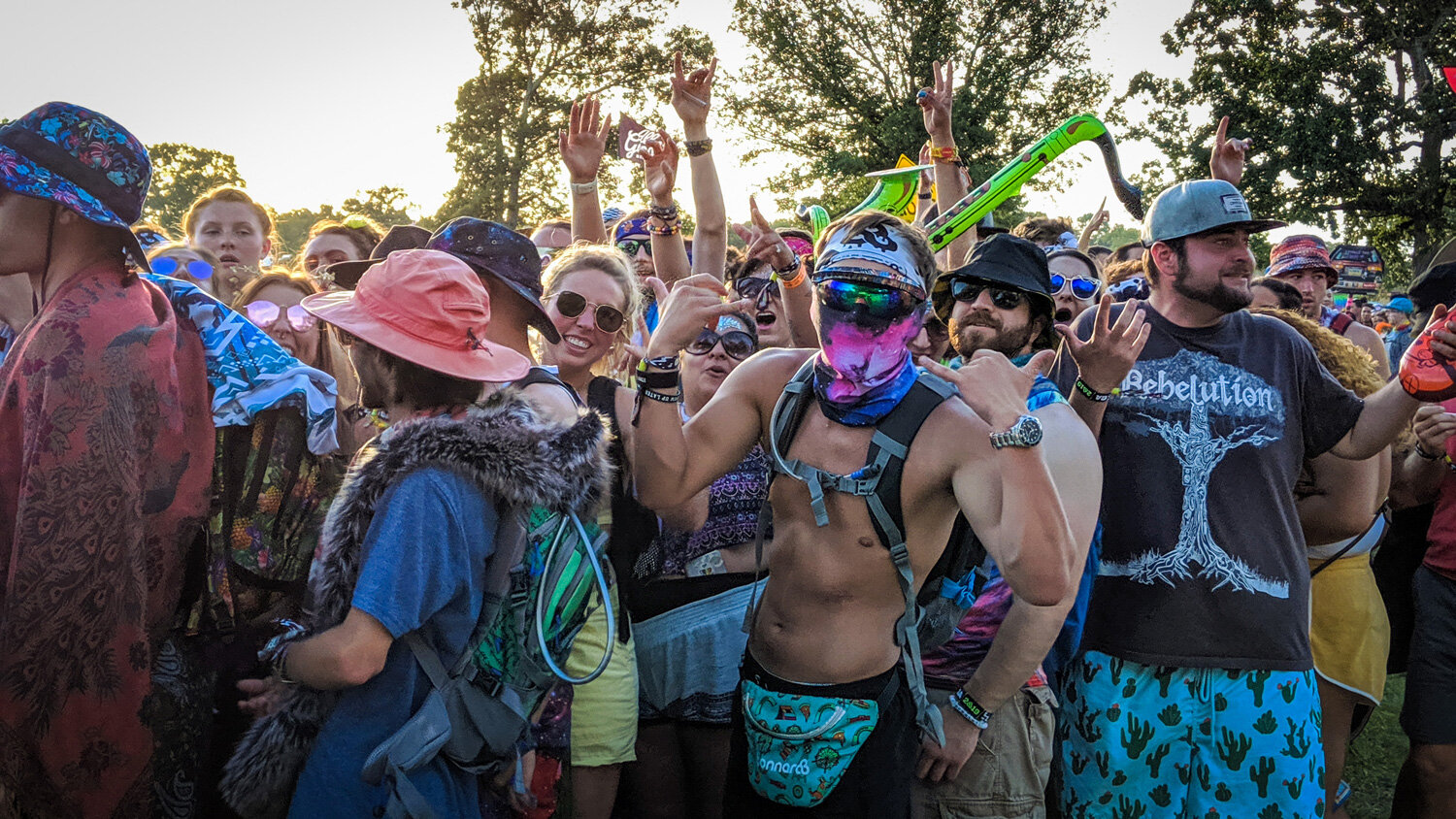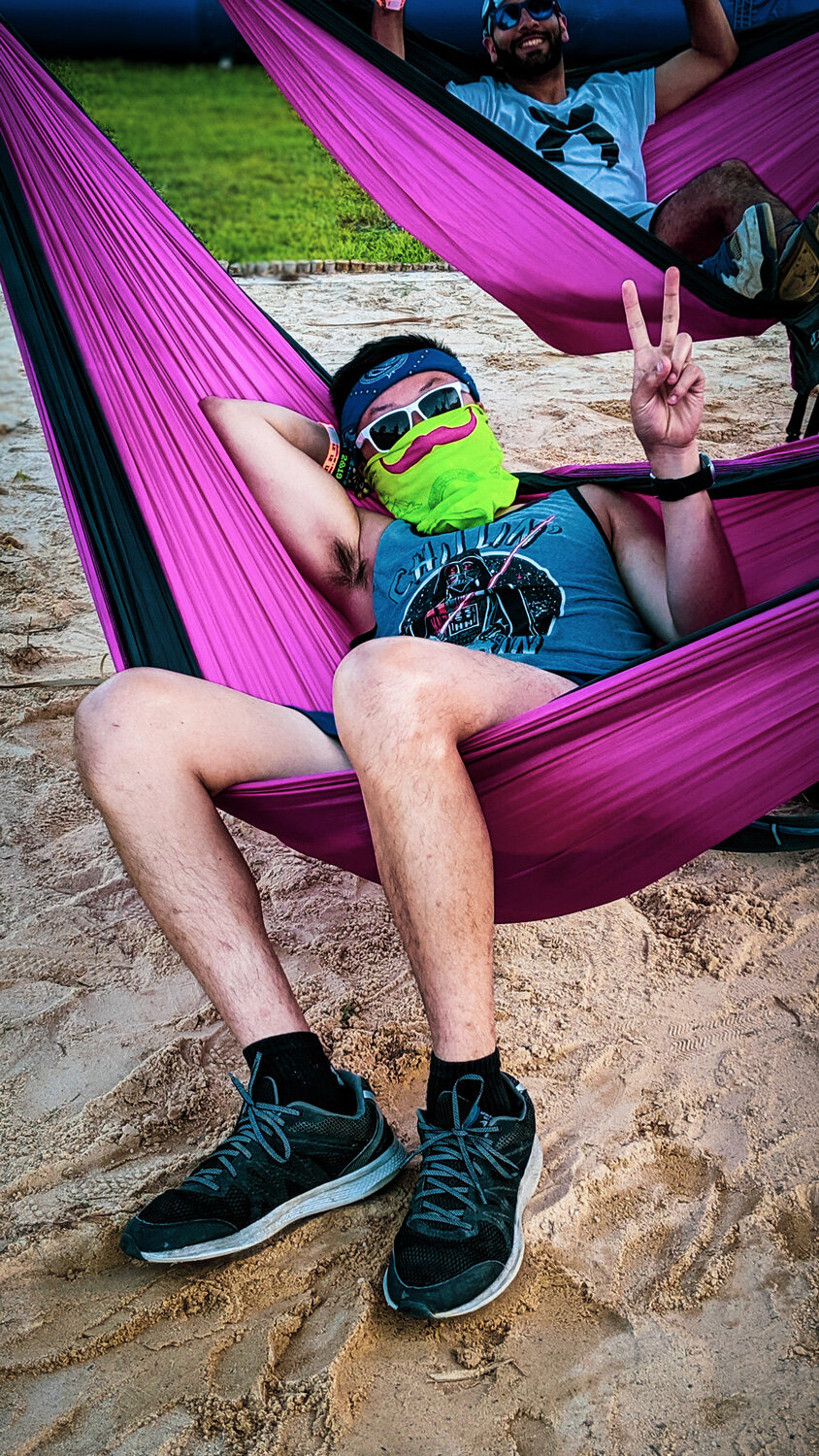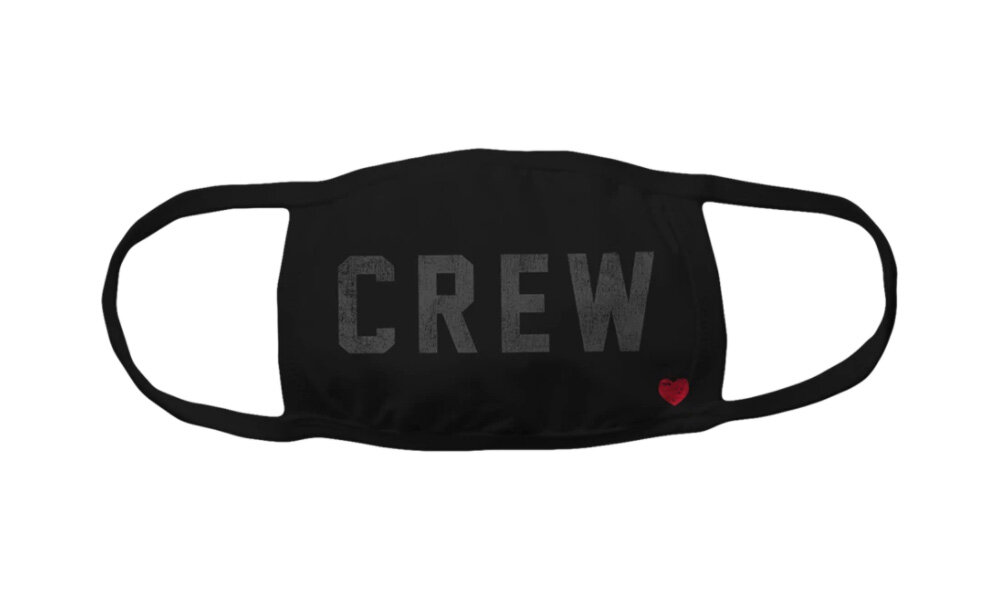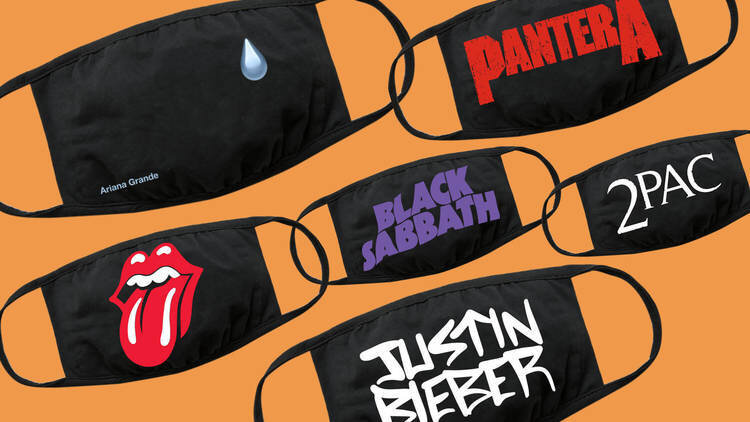by Julie Gordon
Masks. Two months ago, Americans didn’t give them a second thought. Now they’re a daily accessory. In China, and in many other Asian countries, masks have been the norm on and off for the past 100 years, thanks to the devastating Manchurian Plague of 1910. According to an episode of popular podcast, 99% Invisible, called Masking for a Friend, “By the time the SARS epidemic hit China in 2003, the face mask had become pretty common, and people by [that] point already knew what to do.” Here in the U.S. however, masks have a stigma that many Americans cannot seem to shake. Perhaps music merch holds the answer.
Masks have always played a role in outdoor festivals and similar music environments. At Burning Man, an art event held in the harsh Black Rock Desert, dust is such a big part of the experience that masks have reached new levels of creativity in order to protect people from dust storms on the Playa. At music festivals like Bonnaroo and EDC Vegas, which have both celebrated masks over the years, masks have become a fashion statement and functional protection from dusty camp and concert sites.
The trend started simply enough with bandanas and scarves, and quickly evolved into more complex face coverings, like this neoprene mask from EDC. In truth, masks in music are not an anomaly or even that unusual. Musicians have been using masks to hone their identities for decades. Artists like Daft Punk, Deadmau5, and Marshmello have used them as branding devices and to create mystery by obscuring their faces since the beginning of their careers. Started as a joke, monster metal band, GWAR, has not only worn masks but entire thrash metal costumes since they started back in the 1980s. More currently, Billie Eilish even made a habit of using masks during some of her performances, perhaps as an extension of her body-hiding oversized wardrobe, or even something more prophetic. When asked why she dresses as she does, she replied that, “she doesn't want the world to know everything about her, so she relies on fashion to protect herself.”
With the global need to protect people from the airborne pathogen COVID-19, other charitable sites have materialized almost overnight in response. “Bravado, Universal Music Group’s merchandise wing and one of the largest music artist merchandisers in the industry, is selling face masks as part of a new charity initiative to support struggling musicians and industry workers.” The masks include the logos and signature branding of major artists, like Lady Gaga, The Rolling Stones, and Ariana Grande. They’re even selling Tupac masks, for fans of the deceased superstar rapper. Live Nation recently started selling masks as part of their Crew Nation fund, a charity set up to provide global relief for live music crews sidelined by COVID-19. Said Michael Rapino, Live Nation’s CEO, “We want to extend a helping hand to the touring and venue crews who depend on shows to make a living.”
In the short term, cause-related masks are a statement of our support for both front-line workers and those temporarily furloughed, but it won't take long for that to change and become a statement of who we are. “When coronavirus first happened, the face mask was seen as a very negative and scary image. Now, it's going to be something that you wear to the shops. It's become an essential rather than a gimmick, and it will become a fashion accessory,” says Christiaan Munro, founder and co-owner of live music company Sandbag, which has created merchandise for acts including The Chemical Brothers, Radiohead, Bastille and Blink-182. That’s the thing about fashion, “When masks migrate into the realm of fashion, they become something else. As with all accessories (as with shoes, bags and scarves), they become symbols of not just health or social concern, but of identity,” said the New York Times. This intersection of function and identity is where artists and brands can step in, making masks the new must-have merch.
Music, and aligning ourselves with artists we love, has always been a statement of who we are. Masks are simply the newest way for fans to telegraph their musical identities to the world. From the humble beginnings of the band T-shirt, created by “teenage ‘bobby-soxers’ of the 1940s… scrawling the names of their favorite musicians across their clothes and wearing them proudly,” to today’s mega merch, like the portfolio of masks created by Universal Music Group, masks are a way for bands to make a difference.
The concerts and sporting events that we’re all looking forward to attending again will have different requirements going forward, at least in the short term. Masks may be the best, easiest, and safest way for us to protect ourselves and others for the foreseeable future. So it’s time for us to move past old social norms and embrace masks as a part of our new wardrobe. Bands can help accelerate that process by making them something to celebrate, not stigmatize. And together we can redefine what’s cool.





